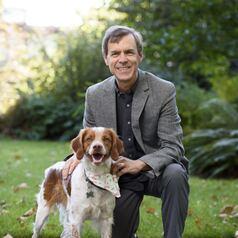
Paul Gronke
Professor of Political Science and Director, Elections & Voting Infomation Center, Reed College
Paul Gronke is a Professor of Political Science at Reed College who studies American politics, specializing in convenience and early voting, election administration, public opinion, and elections. Additionally, Paul serves as Director of the Elections & Voting Information Center (EVIC), an election science research center he founded two decades ago. His researchers are co-located at Reed College and Portland State University (PSU). Under Paul’s leadership, EVIC has become a national center of excellence for policy research and publicly engaged scholarship into election administration, election reform, and electoral integrity.
Paul has published dozens of peer-reviewed articles, monographs, and reports on topics ranging from public opinion and trust in government, public opinion about government use of torture, congressional elections, early and no-excuse absentee voting, and automatic voter registration. Paul is regularly featured in national and regional media outlets as a commentator on politics and elections. He also serves on the Advisory Board for the MIT Election Data Science Lab (MEDSL) and the National Vote at Home Institute‘s Circle of Advisors, and he was awarded an Andrew Carnegie Fellowship in 2020.
Paul received his PhD in political science from the University of Michigan and has held academic positions at Duke University and Appalachian State University in addition to Reed College. Paul’s academic credentials–including his curriculum vita, courses taught, and other research papers, can be found at his personal Reed web page.https://blogs.reed.edu/paul-gronke/
Less ![]()
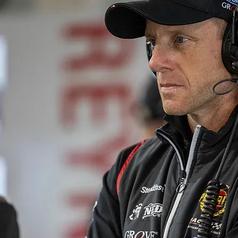
Paul Haines
Manager, Sport Engagement (Performance), Griffith University
Paul Haines is an Accredited Exercise Scientist and High Performance Manager (ESSA), as well as an Accredited Professional Level 2 Strength & Conditioning Coach (ASCA). Paul has 23 years of training professional sporting teams and individuals within a wide variety of sports, including AFL, swimming, athletics, and a variety of motorsport categories including F1, V8 Supercars, MotoX, Moto GP, Superbikes, Speedway, Karting & Off-Road Rally.
Paul's passion is researching & analysing the overall demands of a sport, and then implementing both physical & cognitive training programs simultaneously to improve overall performance.
Using these skills, Paul has also worked as a consultant with the Australian Army over the last 7 years, implementing physical and cognitive stress training protocols for teams and individuals to enhance overall performance within Defence.
Less ![]()
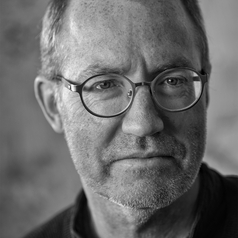
Paul Ham
Lecturer in narrative history, Sciences Po
I write about war and political conflict. Sometimes I cheer up and write about philosophy and religion. I teach narrative history part-time at Sciences Po in France (though I'm on a prolonged break). I've written 14 books (see my website and Wikipedia page for details). Over recent years I've written another, "The Soul: A History of the Human Mind", to be published by Penguin Random House in 2024. It seeks to show that beliefs – religious, political and ideological – are the engines of history.
Less ![]()
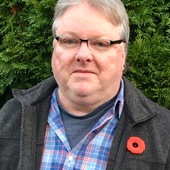
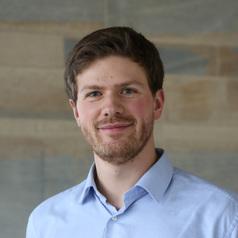
Paul Hanel
Research assistant professor, University of Essex
My research interests include social, personality, political, and cross-cultural psychology as well as science communication and research methods.
A significant part of my empirical work includes human values (e.g., freedom, loyalty, security). Among other things I am interested in how people perceive the values of other people, and whether living in cities or countries in which other people share one's values has positive effects on one's well-being.
Currently, I am especially interested in similarities between groups of people. While people often tend to assume that values, attitudes, and abilities differ between, for example, women and men, younger and older people, or people from different countries, the amount of similarities between these groups is on average pretty large, typically between 80 and 95%. In my research I investigate the effects of highlighting similarities between groups of people.
For a full list of my publications see my Google Scholar profile
https://scholar.google.com/citations?user=huR7aNgAAAAJ&hl=en
Less ![]()

Paul Hetherington
Emeritus Professor of Writing, Faculty of Arts and Design, University of Canberra
Less ![]()
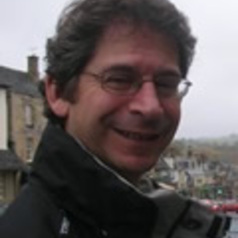
Paul Heywood
Paul Heywood graduated with an MA in Politics (First Class) from the University of Edinburgh, then did postgraduate studies in Madrid and at the LSE, from where he received his MSc(Econ) and PhD (Politics). Before joining the University of Nottingham, he taught at the University of Glasgow and at the University of London. He also worked for the Economist Intelligence Unit, London (1989-93). He has been a member of the ESRC Research Grants Board (2001-05) and was Dean of the University of Nottingham Graduate School from 2003-07. He is currently Director of the University of Nottingham’s ESRC Doctoral Training Centre, which supports research students in the social sciences. Between 2003 and 2009 he was co-editor of the international journal Government and Opposition, and is currently Chair of the Board of Directors. Professor Heywood is author, co-author or editor of fifteen books and more than eighty journal articles and book chapters. His research focuses on political corruption, institutional design and state capacity in contemporary Europe. In 2006, he was appointed Adjunct Professor at the University of Hunan (China), where he is Senior Adviser to the Center for Clean Governance. He is a Fellow of the Royal Society of Arts (elected 2002), and an Academician of the Academy of Social Sciences (elected 2012).
Less ![]()

Paul Hodkinson
Professor of Sociology, University of Surrey
Paul Hodkinson is Professor of Sociology at the University of Surrey. His research focuses on fathers and fathering, youth cultures, pathways through adulthood and experiences of digital social media spaces. He is particularly interested in understanding people's experiences of contemporary life course journeys and transitions.
His books include 'New Fathers, Mental Health and Digital Communication' (with Ranjana Das), 'Sharing Care: Equal and Primary Carer Fathers and Early Years Parenting' (with Rachel Brooks), 'Media, Culture and Society', 'Ageing and Youth Cultures' (with Andy Bennett), 'Youth Cultures: Scenes, Subcultures and Tribes' (with Wolfgang Deicke) and 'Goth: Identity, Style and Subculture'.
He is currently co-editor of the journal, Sociology, and was previously co-editor of Sociological Research Online.
Less ![]()

Paul Holland
Ocean and Ice Scientist, British Antarctic Survey
I am a late-career ice/ocean scientist in the Shelf Seas group at BAS, and an honorary professor at the University of Bristol. My research focusses on the physics of polar oceans, sea ice (frozen seawater), and ice sheets (glacial ice). This research is broadly motivated by understanding changes in global ocean circulation and sea-level rise. I primarily study Antarctica and the Southern Ocean. The Antarctic Ice Sheet is currently losing ice, causing sea-level rise, and this has been caused by changes in ocean melting. My current research focus is to understand why this ice loss is occurring, and how it may change in future.
Less ![]()

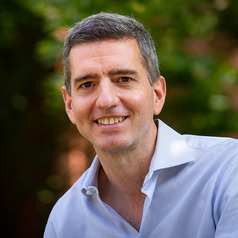
Paul Howe
Professor of the Practice, Tufts University
As director, Paul Howe is responsible for the overall strategy and administration of the Feinstein International Center. A recognized expert on the topic of famine, he brings to his role over 17 years of experience working with the United Nations World Food Program (WFP). In his last assignment, he served as WFP Country Director in Nigeria. He previously worked in Afghanistan, Uganda, and Laos and at WFP’s headquarters in Italy. Even while serving as a senior leader in WFP, Paul continued his research and publication activities on the issues of hunger, famine, and the humanitarian-development-peace nexus. Paul received a bachelor’s degree from Harvard University, a master’s degree from Princeton University, and a doctorate from the Institute of Development Studies at the University of Sussex.
Less ![]()

Paul Huebener
Professor of English, Faculty of Humanities and Social Sciences, Athabasca University
I am a professor of English at Athabasca University, where I am studying representations of sleep in Canada. My book Restless in Sleep Country: Imagination and the Cultural Politics of Sleep is due out from McGill-Queen's University Press in May 2024.
My previous book, Nature’s Broken Clocks: Reimagining Time in the Face of the Environmental Crisis (U Regina Press, 2020), was a finalist for the Alanna Bondar Memorial Book Prize for the Environmental Humanities and for the ASLE-UKI Book Prize for Ecological Creative Writing. My first book, Timing Canada: The Shifting Politics of Time in Canadian Literary Culture (McGill-Queen's UP, 2015), was a finalist for the Gabrielle Roy Prize.
Less ![]()
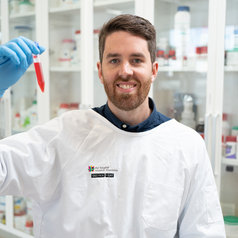
Paul Joyce
Senior Research Fellow, University of South Australia
Dr Paul Joyce is Head of the Translational Nanomedicine & Biotherapeutics Group at the University of South Australia where his research focuses on utilising pharmaceutical science to transform therapeutic outcomes across a wide range of diseases, including cancer, mental health, metabolic syndrome, and antimicrobial resistance. Dr Joyce received his PhD in Pharmacy from the University of South Australia in 2016 where he was awarded a University Medal for Most Outstanding Thesis and the Norton Jackson Award for most outstanding research in materials science. Working at the interface of materials science and drug development, Dr Joyce engages closely with key stakeholders who enable clinical and commercial translation of his research, including the pharmaceutical industry, clinicians, and health consumers. Dr Joyce’s leadership within this field is evidenced through his publication of over 70 peer reviewed papers in leading international journals, 3 book chapters, and 3 granted international patents for novel nanomedicine inventions. Further, Dr Joyce is a Director of the Australian Controlled Release Society, the leading society for delivery science, and has been awarded over $9M in funding to support his research activities, including serving as a current Hospital Research Foundation Fellow and Cancer Council SA Fellow.
Less ![]()
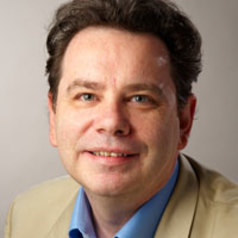
Paul Kennedy
Dr Paul Kennedy joined the Department in 2000, having previously lectured in the Department of European Studies at Loughborough University.
He graduated from the University of Sheffield and completed his doctoral thesis on the Spanish Socialist Government of 1982-1996 at Cardiff University.
Previously he had worked at the Foreign and Commonwealth Office.
His monograph entitled 'The Spanish Socialist Party and the modernisation of Spain' was published by Manchester University Press in 2013.
His research interests focus on contemporary Spanish history and politics.
His most recent work has considered the impact of the international economic crisis on Spain, related articles considering the Spanish Socialist Government’s amendment of the 1978 Constitution in 2011, and the impact of the Popular Party Government’s 2012 Labour Reform.
Less ![]()
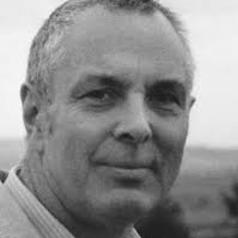
Paul Lashmar
Dr Paul Lashmar joined Sussex in October 2015 as a Senior Lecturer and he is also an investigative journalist and research academic.
Prior to Sussex he was at Brunel University. His PhD is on the links between the intelligence services and the media, which is his core research interest.
Paul is a highly regarded investigative journalist and has worked in television, radio and print. He has been on the staff of The Observer, Granada Television’s World in Action current affairs series and The Independent. He has also produced a number of TV programmes for BBC’s Timewatch and Channel 4’s Dispatches series and is the author of three books and a chapter in ‘Investigative Journalism: Context & Theory’ (2008).
He covered the ‘War on Terror’ for the Independent on Sunday from 2001-2008.
He was awarded ‘Reporter of The Year’ in the 1986 UK Press Awards. Paul has written about terrorism, intelligence, organised crime, offshore crime, business fraud and the Cold War and has broken many major domestic and international stories. He is an adviser to the Centre for Investigative Journalism. Often interviewed on radio about these and other subjects.
An adviser to the Centre for Investigative Journalism at City University.
His full CV can be found at www.paullashmar.com
Specialist in journalism education and training
Current research interests:
* The British Press and the EU
* Moral Panics and the Journalist
* Information flow between intelligence agencies and the news media
* The relationship between reporters and their audience
* Excellence in Journalism Practice
* Socio-economic diversity in journalism
* Journalism and war on terror
* Journalism and organised crime
* Online media entrepreneurialism
Forthcoming book. Multimedia Journalism. Co-author with Steve Hill (Solent University) Sage Publications. Due publication Sept 2013. This book is a synthesis of theory and practice and includes interviews with practitioners.
June 2013 - Paul has a chapter "Journalist, Folk Devil?" in Moral Panics in the Contemporary World. (Eds: Critcher, Hughes, Petley and Rohloff). London: Bloomsbury. Moral panic theorists say the media are central to the 40 year old and popular concept, but in this chapter Paul Lashmar challenges the model observing that no research into actual journalism practice on stories deemed moral panics has previously been undertaken.
From July 2011 Paul has been Honorary Editor for the Proceedings of the Dorset Natural History and Archaeological Society (DNHAS). The Proceedings is an annual semi-scholarly publication that has been published since 1870s. The first volume (133) under Paul's editorship has been available since November 2012. For more details contact Dorset County Museum. The index and details of Proceedings can be found here.
Less ![]()
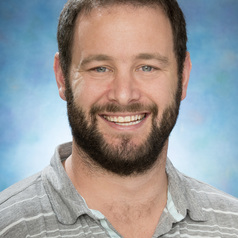
Paul Lasky
Lecturer, Monash University
Paul is a lecturer at Monash University. He is interested in everything related to gravitational physics and Einstein's theory of relativity, and is involved in a variety of research topics such as neutron star and black hole physics, gravitational waves, cosmology, gravitational lensing and alternative theories of gravity. As a member of both the Laser Interferometer Gravitational Wave Observatory (LIGO) Scientific Collaboration, and the Parkes Pulsar Timing Array collaboration he is contributing to the global gravitational wave detection effort by modelling gravitational wave sources and developing data analysis search algorithms.
Less ![]()

Paul Leavy
Doctoral Researcher, Centre for Health Policy and Management, Trinity College Dublin. Appointed Clinical Lecturer, School of Dentistry, RCSI University of Medicine and Health Sciences
Less ![]()
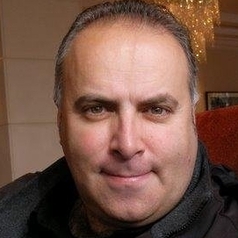
Paul Levy
Paul is author of the new book Digital Inferno (launched in 2015). He is a writer, researcher (at the Centre for Research in Innovation Management, CENTRIM, University of Brighton), facilitator and collusion breaker. Paul also co-authored the books Technosophy and E:Quality. He has written articles for journals, conference, newspapers and magazines. You can visit his other web sites at: http://rationalmadness.wordpress.com/ and http://digitalinferno.wordpress.com/ where you can find most of his writings.
Less ![]()

Paul Liknaitzky
Head of Clinical Psychedelic Research, Monash University
Paul Liknaitzky is Head of Clinical Psychedelic Research at Monash University, and Chief Principal Investigator on a program of psychedelic trials. He is a Research Fellow within both the Dept of Psychiatry (School of Clinical Sciences) and the Turner Institute for Brain and Mental Health (School of Psychological Sciences) at Monash University. He earned an Honours in Neuroscience and a PhD in Psychology from the University of Melbourne, and has Adjunct or Honorary appointments at St Vincent’s Hospital, Macquarie University, Deakin University, and the University of Melbourne. In Australia, he is an Investigator on a number of the country’s initial psychedelic trials, coordinated the first applied psychedelic therapist training programs, obtained the first industry funding for psychedelic science, and leads the first clinical psychedelic lab. His work is focused on developing a rigorous program of research in clinical psychedelics that seeks to evaluate therapeutic effects, innovate on treatment design, mitigate known risks, explore potential drawbacks, and understand therapeutic mechanisms.
Less ![]()
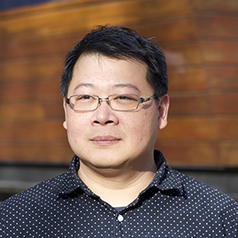
Paul Loh
Lecturer in digital architecture design, University of Melbourne
Paul Loh is lecturer in Digital Architecture design at the University of Melbourne. Prior to this Paul studied architecture at the University of Melbourne and University of East London before joining the Design Research Lab at the Architectural Association where he completed his Master in Architecture and Urbanism. He has over 12 years of practice experience in London, Melbourne and Kuala Lumpur. Paul was senior lecturer at the University of East London between 2005 and 2011. He has taught at the Architectural Association and lectured in UK, Sweden, Italy and China. He is a partner of Melbourne based design practice LLDS / Power To Make, focusing on the relationship between making, technology and material. Paul is a PhD candidate at SIAL RMIT. His main research interest is digital fabrication and craft formation in computational design.
Less ![]()
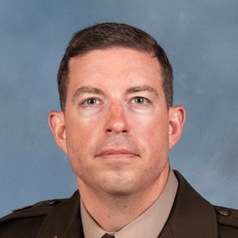
Paul Lushenko
Assistant Professor and Director of Special Operations, US Army War College
LTC Paul Lushenko is an Assistant Professor and Director of Special Operations at the U.S. Army War College. He earned his Ph.D. and M.A. in International Relations from Cornell University. He also holds an M.A. in Defense and Strategic Studies from the U.S. Naval War College, an M.A. in International Relations and a Master of Diplomacy from The Australian National University, and a B.S. from the U.S. Military Academy. Paul has deployed continuously, directing intelligence operations at the Battalion, Combined Task Force, and Joint Task Force levels. In his most recent operational assignment, Paul served as the Senior Intelligence Officer for the Joint Special Operations Task Force in Afghanistan, and was also responsible for shaping the coalition’s strategy to defeat the Islamic State and helping to regionalize U.S. counterterrorism policy and strategy. Paul is a Council on Foreign Relations Term Member, Adjunct Research Lecturer at Charles Sturt University, and Non-Resident Senior Fellow at Cornell University’s Tech Policy Institute. He is the co-editor of Drones and Global Order: Implications of Remote Warfare for International Society (2022), which is the first book to systematically study the implications of drone warfare on global politics. He also has a book forthcoming on the public’s perceptions of legitimate drone strikes, entitled The Legitimacy of Drone Warfare: Evaluating Public Perceptions (2024).
Less ![]()

Paul M. Collins Jr.
Paul M. Collins, Jr. is Professor of Legal Studies and Political Science at the University of Massachusetts Amherst. He holds a Ph.D. and M.A. in political science from Binghamton University and a B.S. in political science from the University of Scranton. His research focuses on understanding the democratic nature of the judiciary, interdisciplinary approaches to legal decision making, and interest group litigation.
The recipient of numerous research awards, he has published articles in the Journal of Empirical Legal Studies, Journal of Law and Courts, Journal of Politics, Law & Social Inquiry, Law & Society Review, Notre Dame Law Review, Political Research Quarterly, and other journals. His research has been funded by grants from the Dirksen Congressional Center and the National Science Foundation. He is currently a member of the editorial boards of the Justice System Journal and Law & Social Inquiry, and formerly sat on the boards of Law & Society Review and Political Research Quarterly. He is also the President of the Consortium for Undergraduate Law and Justice Programs and was the List Master of the Law and Courts Discussion List from 2014-2020. His research and commentary have appeared in a host of popular media outlets, including CNN, the New York Times, National Law Journal, National Public Radio, San Francisco Chronicle, Time, USA Today, Voice of America, Wall Street Journal, and the Washington Post. He has also authored articles in SCOTUSblog, Slate, The Conversation, and the Washington Post.
Collins is also the author of three books. The President and the Supreme Court: Going Public on Judicial Decisions from Washington to Trump, coauthored with Matthew Eshbaugh-Soha, was published in 2019 by Cambridge University Press. Supreme Court Confirmation Hearings and Constitutional Change, coauthored with Lori A. Ringhand, was published in 2013 by Cambridge University Press and was recognized by Choice as an 2014 Outstanding Academic Title. Friends of the Supreme Court: Interest Groups and Judicial Decision Making was published in 2008 by Oxford University Press and received the 2009 C. Herman Pritchett Award from the Law and Courts Section of the American Political Science Association. This award recognizes Friends of the Supreme Court as the best book on law and courts written by a political scientist.
Less ![]()
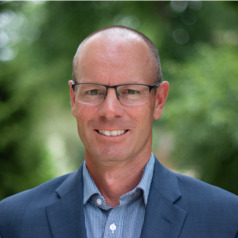
Paul Markowski
Distinguished Professor of Meteorology, Penn State
The Markowski research group investigates convective storms and their attendant hazards, particularly tornadoes, using state-of-the-art observations, computer simulations, and theory.
Less ![]()
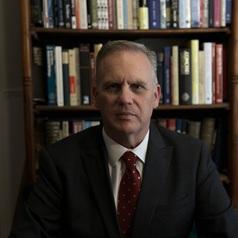
Paul Moon
Professor of History, Auckland University of Technology
I teach history, specialising in Britain's colonisation of New Zealand, and the Treaty of Waitangi.
Less ![]()
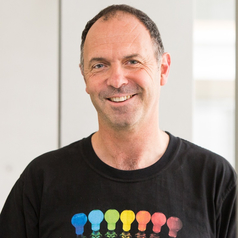
Paul Mulvaney
I am a Professor of Chemistry at the University of Melbourne. I am interested in nanoscale materials and the use of these novel materials in new technologies such as solar cells.
Less ![]()
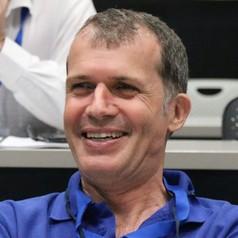
Paul Nelson
Associate Professor of Soil Science, James Cook University
Paul Nelson is Associate Professor of Soil Science at James Cook University. He does research and teaching in land and water science. Paul's current research focuses on how human management and natural processes influence the sustainability and environmental impact of agriculture and aquaculture, including productivity, soil condition, water quality, carbon and nutrient cycling and greenhouse gas emissions.
Prior to joining James Cook University, Paul led the Agronomy program of the Papua New Guinea Oil Palm Research Association. He has also worked with CSIRO, the Bureau of Sugar Experiment Stations, the Queensland Department of Natural Resources, the Australian Centre for Water Treatment and Water Quality Research, the French National Agricultural Research Institute (INRA) and the Swedish University of Agricultural Sciences.
Less ![]()
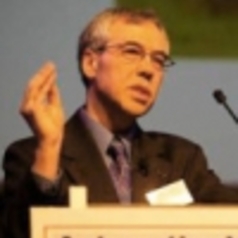
Paul Nieuwenhuis
Paul Nieuwenhuis was born in the Netherlands and studied in Australia, Belgium, Spain and Scotland, where he obtained his PhD from Edinburgh University. After a spell in consultancy, carrying out projects for most of the world’s car and truck makers and acting as a special advisor on state aid in the automotive industry to the European Commission (DGIV), he joined the Centre for Automotive Industry Research (CAIR) at Cardiff University in 1990.
CAIR specialises in the economic and strategic aspects of the world automotive sector, giving it a rare overview of the industry. The centre has attracted contracts from car manufacturers, suppliers and governments, world-wide. Here he also developed his special interest in the problems of making personal mobility compatible with the need for sustainability. In 2001 he became a founder member of the ESRC-funded Centre for Business Responsibility, Accountability, Sustainability and Society (BRASS) at Cardiff University.
He co-created an innovative course in Motoring Journalism together with the highly regarded Cardiff University School of Journalism, Media and Cultural Studies and is also a director – in partnership with colleagues at the Cardiff School of Engineering – of the Electric Vehicle Centre of Excellence at Cardiff University.
Less ![]()
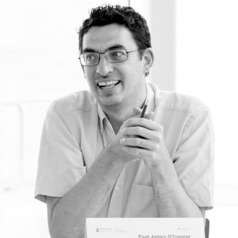
Paul O'Connor
Senior lecturer in Sociology, University of Exeter
Paul O’Connor is lecturer in Sociology and Anthropology at the University of Exeter. He received his doctorate studying Muslim youth in Hong Kong and has researched and published on issues of cultural hybridity, ethnicity, and religion. He is also a lifelong skateboarder interested in the mystical and arcane practices of skateboard culture, and author of the book Skateboarding and Religion.
Less ![]()

Paul O'Neill
Assistant Clinical Professor of Food and Hospitality Management, Drexel University
Less ![]()
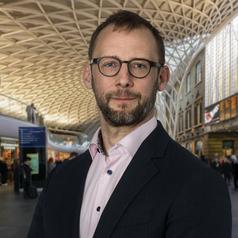
Paul Plummer
Professor in Rail Strategy, University of Birmingham
Former CEO, board director and economist with experience in policy, business strategy, transport, infrastructure and change. Now using that experience as a professor, non-executive director and mentor to help individuals or organisations make a difference in areas which matter for our society.
Less ![]()

Paul Rincon
Commissioning Editor, Science, Technology and Business
Paul is a journalist and editor with experience in print, radio, television and podcasting. He wrote about technology and business before joining BBC News as a science reporter. In that role, he covered everything from climate change and space launches to the search for the Higgs Boson. He later became the science editor for the BBC News website, working on breaking stories, features and special projects.
Less ![]()
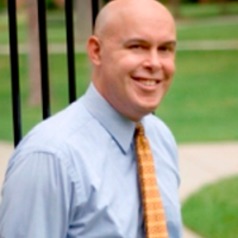
Paul Ringel
Professor of U.S. History, High Point University
Paul Ringel is an award-winning associate professor of history at High Point University in High Point, North Carolina. He teaches a variety of courses on the 19th and 20th-century United States, with a particular focus on race, sports, and popular culture. He was named High Point University Service Learning Professor of the Year for 2014-2015. His book, Commercializing Childhood: Children’s Magazines, Urban Gentility, and the Ideal of the American Child, won the Children's Literature Association's 2015 Honor Book Award for "outstanding scholarship in the field of children's literature," and is available now. He has written articles for a variety of outlets, including Time, The Atlantic, and Smithsonian magazines, as well as scholarly journals such as The Public Historian and NINE: A Journal of Baseball History and Culture. As a public historian, he has worked as a consultant for the PBS television program The Time Warp Trio and leads the William Penn Project, a service learning initiative through which High Point University students are researching and building a website on the history of the city’s all-black high school from 1892 through 1968. Current projects include a biography of Brad Lilley, a Black Panther based in High Point, NC; a monograph on Boston’s Royal Rooters, an early group of celebrity sports fans; and an update of the 1970s television program Schoolhouse Rock.
Less ![]()
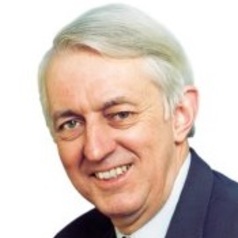
Paul Rogers
Professor of Peace Studies, University of Bradford
Paul Rogers continues his work on trends in international conflict with a particular focus on the interactions of socio-economic divisions and environmental constraints. Within this area of study he works on issues such as the politics of energy resource use and the impact of climate change on international security. He has a particular research interest in radicalisation and political violence. His regional emphasis is primarily on the Middle East and South Asia and his work on sustainable security links with Oxford Research Group. He is also involved in a new pilot project for the Network for Social Change on “Remote Control” – the use of armed drones, Special Forces, privatised military companies and other forces to maintain control, raising issues of ethical behaviour, accountability, precedent-setting and and risk of proliferation. In the past, Paul lectured at Imperial College and was a Senior Scientific Office in Kenya and Uganda.
Less ![]()
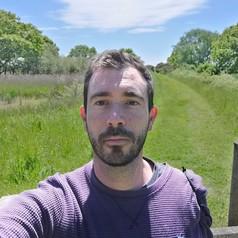
Paul Rose
Lecturer, University of Exeter
Paul is a Lecturer at the University of Exeter and a Research Associate at the Wildfowl & Wetlands Trust (WWT). He also manages the Animal Welfare & Ethics Committee (AWEC) for WWT operations, conservation and other activities.
Paul teaches at undergraduate and postgraduate level, with subject specialisms of animal behaviour, animal welfare, conservation biology, zoo animal management and animal health. He is a Senior Fellow of the Higher Education Academy. Paul is a member of the IUCN Giraffe & Okapi Specialist Group and of the IUCN Flamingo Specialist Group (www.facebook.com/FlamingoSpecialistGroup) and actively engages with colleagues working in flamingo management and conservation. Paul also has a strong zoo research background, and is Co-Chair of the BIAZA Research Committee, and is the Research Officer for the BIAZA Bird Working Group. He also runs the social media for the BIAZA Research Committee. Paul is a member of the Zoos Expert Committee for the UK Government.
Less ![]()
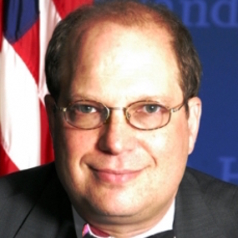
Paul Rosenzweig
After graduating law school Mr. Rosenzweig clerked for Judge R. Lanier Anderson, III of the United States Court of Appeals for the Eleventh Circuit. Since then he has held positions working in all three branches of the Federal government, most recently (from 2005-09) as the first Deputy Assistant Secretary for Policy at the Department of Homeland Security.
He is a Senior Editor of the Journal of National Security Law and Policy and as a member of the Advisory Committee to the ABA’s Standing Committee on Law and National Security. He also serves on the District of Columbia Bar’s ethics Rules Review Committee and has a private practice within the District.
Less ![]()
- Market Data





















